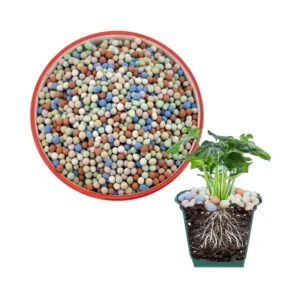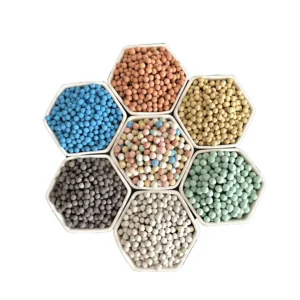In the realm of water filtration, clay balls have been utilized as a potential medium. These small yet significant spheres play a role in the purification process.
Clay balls are often made from natural clay materials that are processed and formed into their spherical shape. They possess certain physical and chemical properties that make them suitable for water filtration purposes. One of the key aspects is their porosity. The pores within the clay balls allow water to pass through while trapping impurities and contaminants. This helps in removing debris, sediments, and even some dissolved substances from the water.

In different water filtration systems, the lifespan of clay balls can vary. In small-scale domestic filters, they might last for several months to a year depending on the quality of the incoming water. For instance, if the water source has a relatively low level of contaminants, the clay balls can maintain their effectiveness for a longer period. However, in areas with poor water quality, where there are high levels of heavy metals or excessive amounts of suspended solids, the lifespan of the clay balls may be reduced.
Another factor influencing the lifespan is the frequency of use and the volume of water being filtered. In commercial or industrial water filtration setups that handle large volumes of water continuously, the clay balls may need to be replaced more frequently. Some studies have shown that in such systems, the clay balls might need replacement every few weeks to ensure optimal filtration performance.

To extend the lifespan of clay balls in water filtration, proper maintenance is crucial. Regular cleaning can remove the accumulated impurities on the surface and within the pores of the clay balls. This can be done by rinsing them with clean water or using mild chemical solutions in some cases. Additionally, ensuring that the water being filtered is pre-treated to remove larger particles can also reduce the burden on the clay balls and potentially increase their lifespan.
It’s also important to note that the quality of the clay balls themselves matters. High-quality clay balls that are manufactured with strict quality control standards are more likely to have a longer lifespan and better filtration performance. Some manufacturers use advanced processing techniques to enhance the durability and filtration efficiency of the clay balls.
In conclusion, the lifespan of clay balls in water filtration is influenced by multiple factors such as water quality, usage frequency, volume of water filtered, and maintenance practices. By understanding these factors and taking appropriate measures, we can optimize the use of clay balls in water filtration systems and ensure their effective operation.

